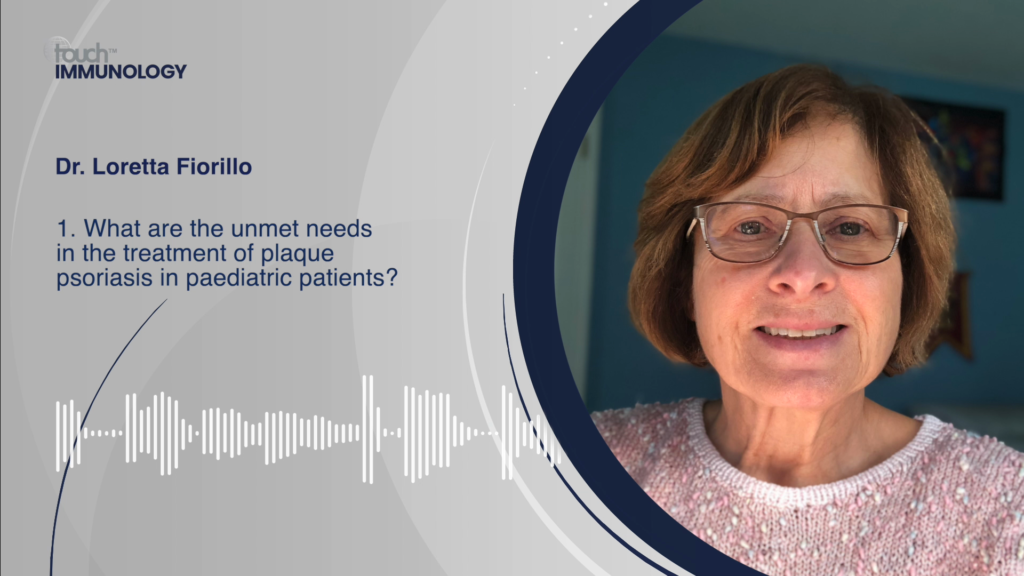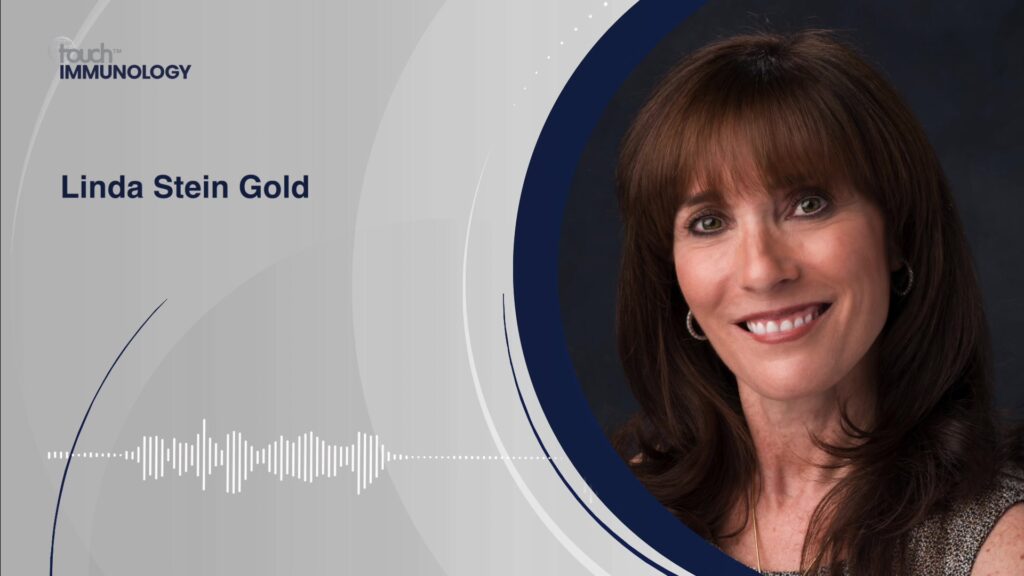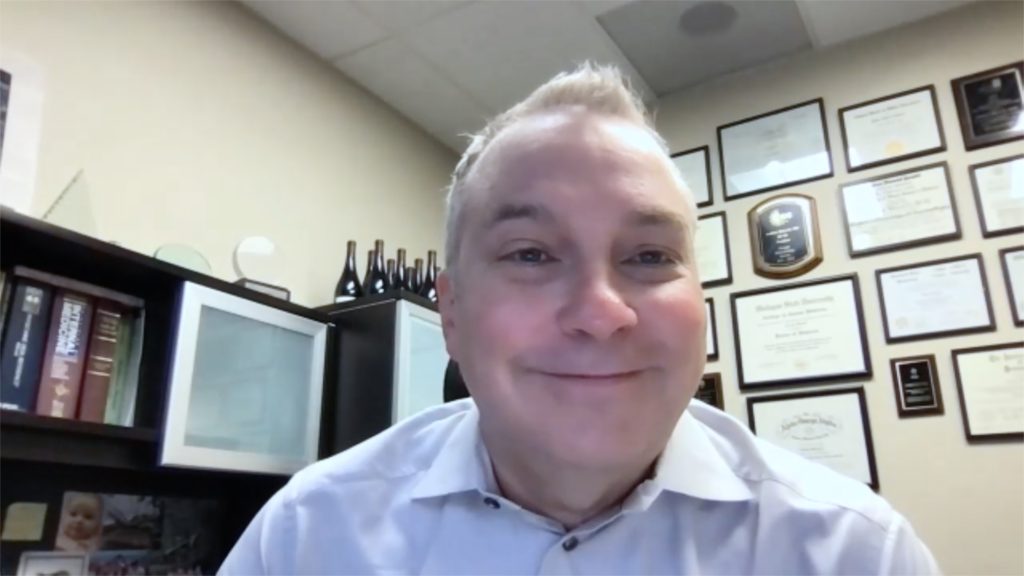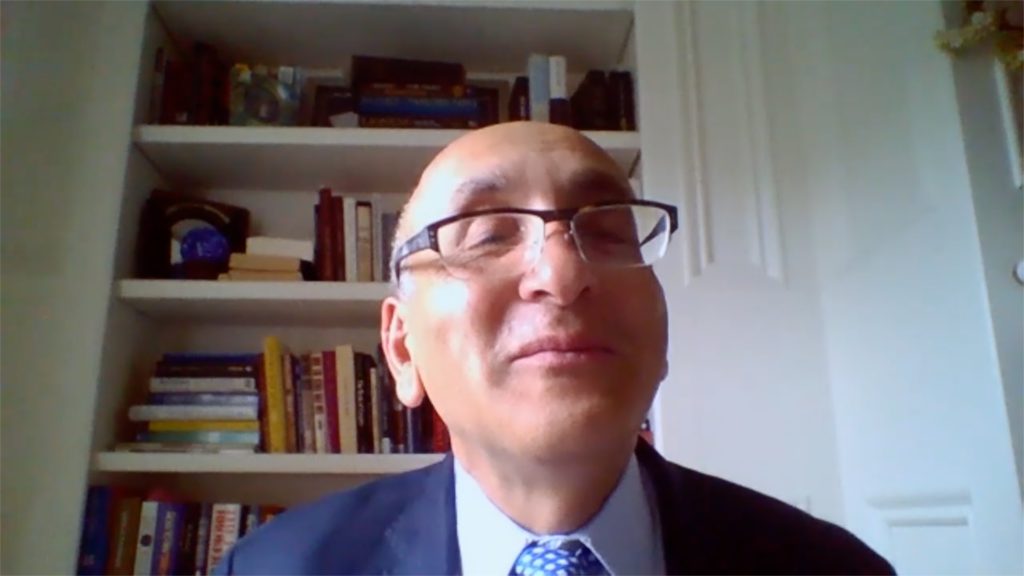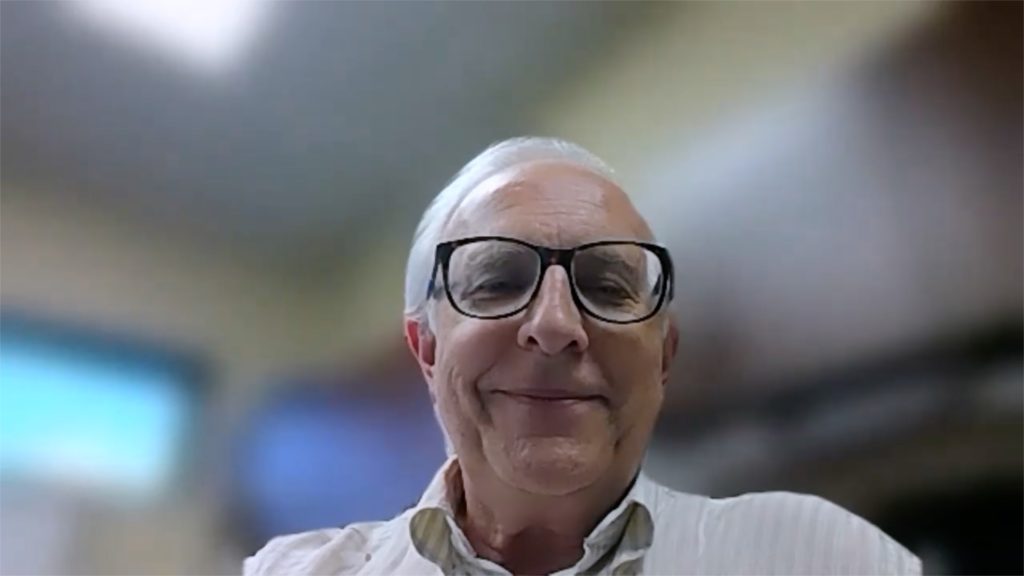Deucravacitinib is an allosteric tyrosine kinase 2 inhibitor approved for the treatment of moderate to severe plaque psoriasis, a post-hoc analysis of the phase 3 POETYK PSO-1 and PSO-2 trials investigated the efficacy of deucravacitinib by baseline characteristics in this indication. touchIMMUNOLOGY were delighted to speak with Dr. Melinda Gooderham (SKiN Centre for Dermatology, Ontario, Canada) around the impact deucravacitinib has already had on the treatment paradigm for plaque psoriasis, the methodology and findings of this analysis, and how these findings will optimise the use of deucravacitinib in clinical practice.
The abstract ‘Deucravacitinib, an Oral, Selective, Allosteric Tyrosine Kinase 2 Inhibitor, in Moderate to Severe Plaque Psoriasis: Efficacy by Baseline Demographic and Disease Characteristics in the Phase 3 POETYK PSO-1 and PSO-2 Trials.’ (Poster ID: 43887) was presented at AAD 2023, 17-21 March, 2023.
This information is brought to you by Touch Medical Media and is not sponsored by, nor a part of, the AAD.
Questions
- What impact has deucravacitinib already had on the treatment paradigm for moderate to severe plaque psoriasis? (0:13)
- What was the methodology of this analysis of the POETYK PSO-1 and PSO-2 trials? (0:47)
- What were the findings in terms of deucravacitinib efficacy by baseline characteristics? (1:58)
- How will these insights optimise our use of deucravacitinib? (3:29)
Disclosures: Melinda Gooderham discloses consulting for: AbbVie, Akros, AMGEN, Arcutis, Aslan, Bausch, Boehringer Ingelheim, Celgene, Eli Lilly, Janssen, Kyowa, Novartis, Regeneron, Sanofi, Sun Pharma, UCB and Ventyx; receiving grant/research support from: AbbVie, Akros, AMGEN, AnaptysBio, Arcutis, Aristea, Aslan, Bausch, Boehringer Ingelheim, BMS, Celgene, Coherus, Dermavant, Dermira, Eli Lilly, Galderma, GlaxoSmithKline, Incyte, Janssen, Kyowa, LEO, MedImmune, Meiji, Merck, MoonLake, Nimbus, Novartis, Pfizer, Regeneron, Sanofi, Sun Pharma, UCB and Ventyx; serving on advisory boards for: AbbVie, AMGEN, Arcutis, Asana, Aslan, Bausch, Boehringer Ingelheim, Celgene, Dermavant, Eli Lilly, Galderma, Janssen, LEO, Novartis, Pfizer, Regeneron, Sanofi, Sun Pharma, UCB and Ventyx; receiving honoraria/honorarium from: AbbVie, Akros, AMGEN, AnaptysBio, Arcutis, Aristea, Asana, Aslan, Bausch, Boehringer Ingelheim, BMS. Celgene, Coherus, Dermavant, Dermira, Eli Lilly, Galderma, GlaxoSmithKline, Incyte, Janssen, Kyowa, LEO, MedImmune, Meiji, Merck, MoonLake, Nimbus, Novartis, Pfizer, Regeneron, Sanofi, Sun Pharma, UCB and Ventyx; and participating in speaker’s bureaus for: AbbVie, AMGEN, Arcutis, Bausch, Boehringer Ingelheim, Celgene, Eli Lilly, Galderma, Janssen, LEO, Novartis, Pfizer, Regeneron, Sanofi, Sun Pharma, UCB and Ventyx.
Support: Interview and filming supported by Touch Medical Media Ltd. Interview conducted by Victoria Jones.
Filmed in coverage of the 2023 AAD Annual Meeting.
Click here for more content on dermatological conditions.
Transcript
What impact has deucravacitinib already had on the treatment paradigm for moderate to severe plaque psoriasis? (0:13)
So deucravacitinib, which is a selective TKY2 inhibitor has provided patients with a simple once daily dosing oral medication for management of moderate to severe plaque psoriasis. It’s been another option. Up to this point, we’ve just had conventional, systemic agents and then newer therapy with apremilast, apremilast is twice a day and can be associated with some tolerability issues which we did not see with deucravacitinib.
What was the methodology of this analysis of the POETYK PSO-1 and PSO-2 trials? (0:47)
So, the POETYK PSO-1 and -2 are two sister studies, identically designed, randomized controlled trials. Patients were randomized 1 to 2 to 1 fashion to either placebo, deucravacitinib or apremilast and the studies PSO-1 and PSO-2 are identical up to week 24 at which point in PSO-1 the apremilast group is re-randomized based on their PASI 50 response to either stay on apremilast or switch to deucravacitinib whereas in POETYK PSO-2 at week 24 the deucravacitinib and the apremilast groups are re-randomized based on their PASI 75 response to either do a withdrawal retreatment treatment or remain on or switch to deucravacitinib and then so this poster is looking at the differences in efficacy by baseline demographic and disease characteristics. And so this was done as pooled analysis of these two trials together and it was done as a post-hoc analysis.
What were the findings in terms of deucravacitinib efficacy by baseline characteristics? (1:58)
So, because of the identical study designs up to week 24, the week 24 assessment looked at deucravacitinib versus apremilast. And what we found is that across age, weight, body mass index, sex and race, as well as disease characteristics at baseline. So PASI cut off as a PASI 20 lower or greater, an SPG of three or four and a BSA of 10-20 or greater than 20. Deucravacitinib was more effective than apremilast in all of those baseline demographics and disease characteristics. So we saw that deucravacitinib was more effective in all of these, whereas the 52 week assessment was really just looking because patients were no longer on apremilast in that second half. So, we’re just looking at how deucravacitinib works in those groups. And really the only place we see any reduced effect is in looking at body weight deciles. Some of the higher deciles, like the eighth, ninth and 10th deciles, had slightly lower PASI responses compared to the lighter patients. So, we know based on the disease characteristics, it made no difference. But where we saw a slight decrease was in the heavier patient group.
How will these insights optimise our use of deucravacitinib? (3:29)
So, I would say that knowing that and knowing that heavier patients may not do as well, these patients will just require possibly some combination therapy with topical therapy or phototherapy. So just knowing when you get started with a patient who might be on the heavier end of the spectrum, that you may have to do more optimization to get the same effect as somebody who might be lighter. But overall, I think we had the confidence that whether the patient is moderate or severe or whether they are young or old or what race, that deucravacitinib will work the same regardless, really just those heavier patients where you might have to optimize.
Subtitles and transcript are autogenerated.



